Filter by
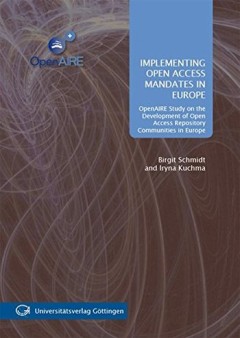
Implementing open access mandates in Europe - OpenAIRE study on the developme…
The implementation of open access policies in Europe is a socio-technical undertaking whereby a wide range of stakeholders work together to bring out the benefits of open access for European and global research. This work provides a unique overview of national awareness of open access in 32 European countries involving all EU member states and in addition, Norway, Iceland, Croatia, Switzerland …
- Edition
- -
- ISBN/ISSN
- 9783863950958
- Collation
- 175p. : ill.
- Series Title
- -
- Call Number
- 070.57973094 SCH i
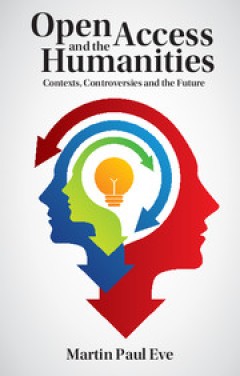
Open access and the humanities : contexts, controversies and the future
If you work in a university, you are almost certain to have heard the term 'open access' in the past couple of years. You may also have heard either that it is the utopian answer to all the problems of research dissemination or perhaps that it marks the beginning of an apocalyptic new era of 'pay-to-say' publishing. In this book, Martin Paul Eve sets out the histories, contexts and controversie…
- Edition
- -
- ISBN/ISSN
- 9781107484016
- Collation
- xv, 209p. : ill.
- Series Title
- -
- Call Number
- 001.30285 EVE o
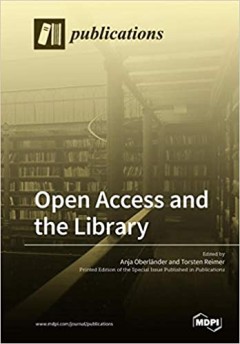
Open access and the library
Libraries are places of learning and knowledge creation. Over the last two decades, digital technology—and the changes that came with it—have accelerated this transformation to a point where evolution starts to become a revolution.The wider Open Science movement, and Open Access in particular, is one of these changes and is already having a profound impact. Under the subscription model, the…
- Edition
- -
- ISBN/ISSN
- 9783038977407
- Collation
- vii, 131p. : ill.
- Series Title
- -
- Call Number
- 026.3 OPE o
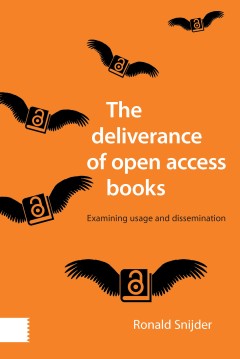
The deliverance of open access books : examining usage and dissemination
In many scholarly disciplines, books - not articles - are the norm. As print runs become smaller, the question arises whether publishing monographs in open access helps to make their contents globally accessible. To answer this question, the results of multiple studies on the usage of open access books are presented. The research focuses on three areas: economic viability; optimization of open …
- Edition
- -
- ISBN/ISSN
- 9789085551201
- Collation
- 234p. : ill.
- Series Title
- -
- Call Number
- 002.09 SNI d

Shadow libraries : access to educational materials in global higher education
How students get the materials they need as opportunities for higher education expand but funding shrinks.From the top down, Shadow Libraries explores the institutions that shape the provision of educational materials, from the formal sector of universities and publishers to the broadly informal ones organized by faculty, copy shops, student unions, and students themselves. It looks at the hist…
- Edition
- -
- ISBN/ISSN
- 9780262535014
- Collation
- -
- Series Title
- -
- Call Number
- 070.5 SHA s
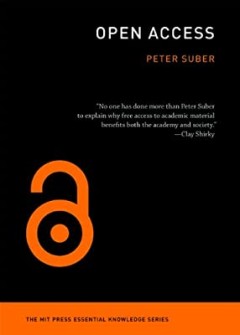
Open access
A concise introduction to the basics of open access, describing what it is (and isn't) and showing that it is easy, fast, inexpensive, legal, and beneficial.The Internet lets us share perfect copies of our work with a worldwide audience at virtually no cost. We take advantage of this revolutionary opportunity when we make our work “open access”: digital, online, free of charge, and free of …
- Edition
- -
- ISBN/ISSN
- 9780262517638
- Collation
- xii, 241p. : ill
- Series Title
- -
- Call Number
- 070.57973 SUB o
 Computer Science, Information & General Works
Computer Science, Information & General Works  Philosophy & Psychology
Philosophy & Psychology  Religion
Religion  Social Sciences
Social Sciences  Language
Language  Pure Science
Pure Science  Applied Sciences
Applied Sciences  Art & Recreation
Art & Recreation  Literature
Literature  History & Geography
History & Geography